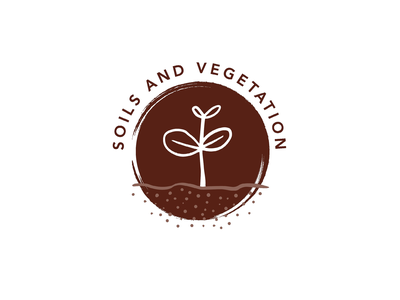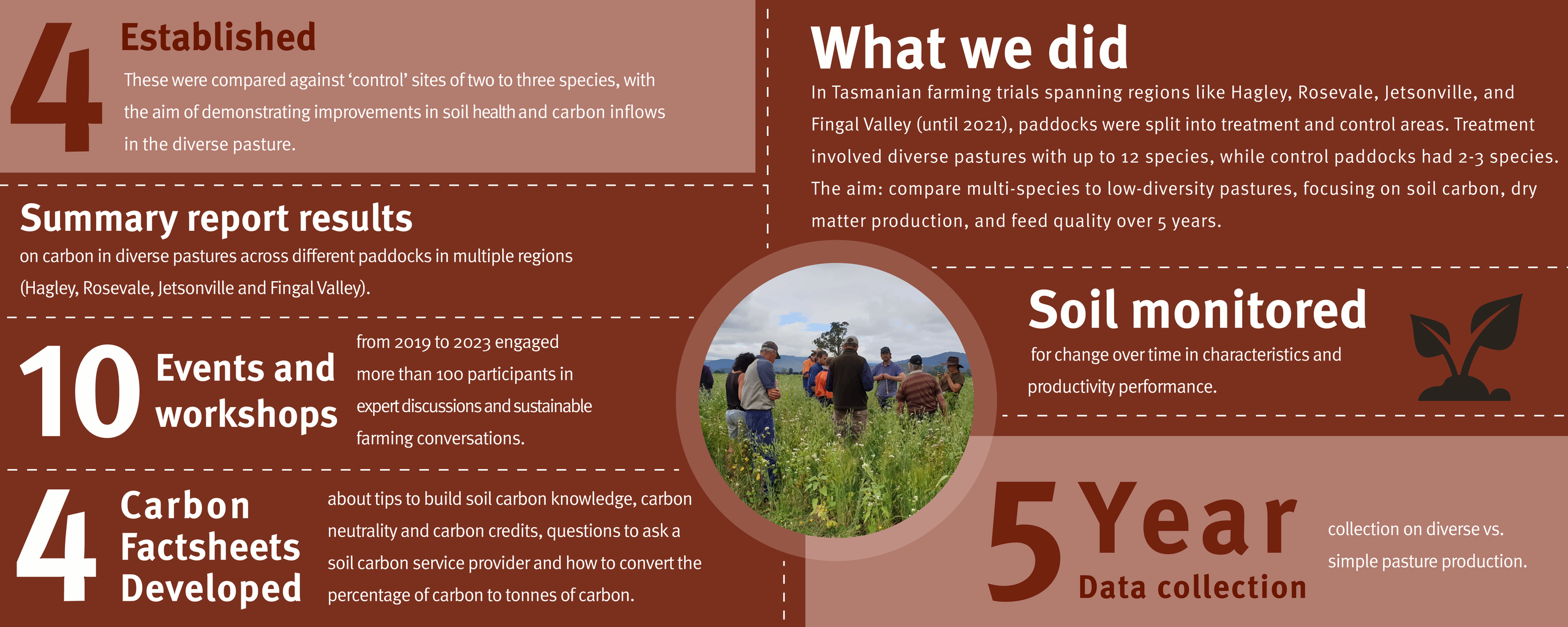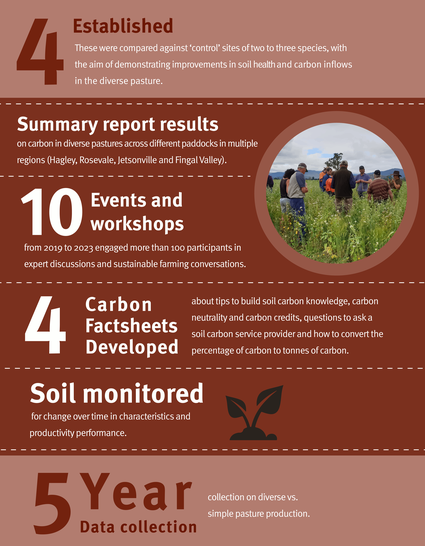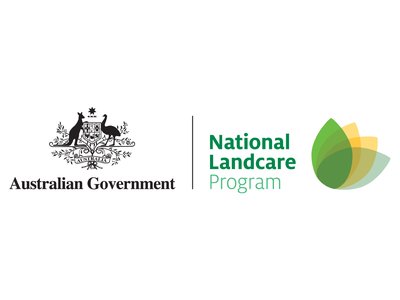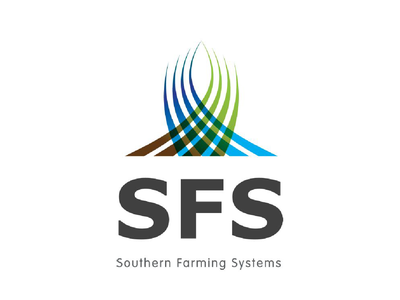Soil Carbon Project
The Soil Carbon Project aimed to improve carbon flow into the soil in cropping systems and pasture, increasing the adoption of appropriate and specific methods for each system to achieve maximum results. The project concluded in June 2023.
Focus
Focus
The Soil Carbon Project targeted areas of the mixed farming and grazing sector including Westbury, West Tamar, Fingal Valley and the state’s north east to investigate the cost-benefit ratio of highly diverse pastures in improving soil health and livestock performance. The project also focused on the broadacre cropping industry across northern Tasmania, specifically in the target area between Westbury and Ross.
The project worked across the grazing sector and broadacre cropping industry to;
- increase awareness of constraints to carbon flow into soil;
- encourage adoption of best management practices to improve carbon flows to soil;
- drive annual net primary productivity and soil carbon inputs through a focus on mixed-species pasture selection to maximise root depth and density; and
- assist broadacre crop growers overcome soil constraints, improve rooting depth and increase yields.
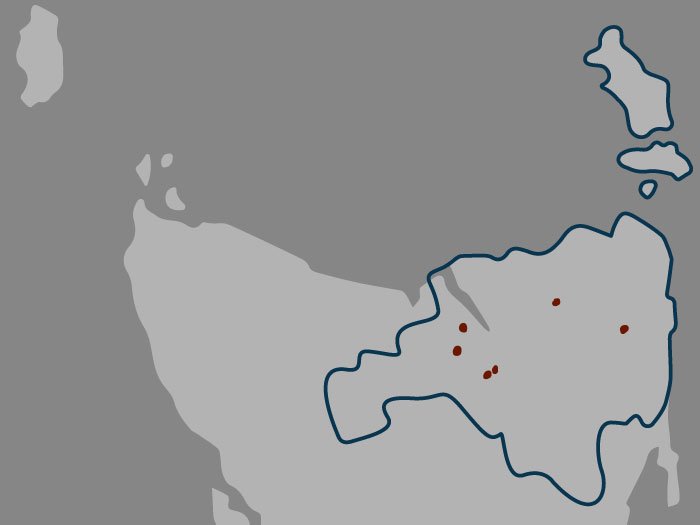
The project focuses on target areas of the mixed farming and grazing sector.
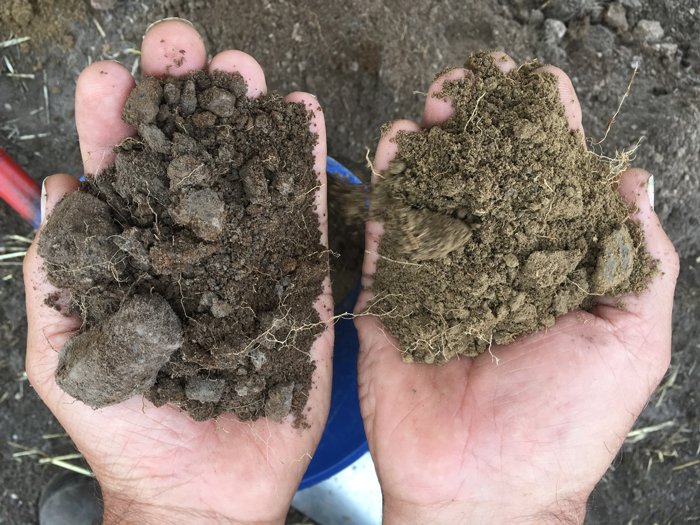
Soil samples, before and after carbon gains.
Value
Value
Tasmanian agricultural systems have relatively high organic carbon content due to climatic and soil influences. However, cropping systems often involve tillage and many areas in Tasmania have been cultivated for 200 years. This long history of tillage and fallows has led to significant declines in soil carbon and overall soil health.
Year-round availability of moisture and nitrogen though irrigation expansion could potentially result in further soil carbon decline, however through improved irrigation and soil management techniques, carbon gains are possible.
Achievements
- - - - - - - - - - - - - - - - - - -
Pastures, Carbon and Credit$ workshop - Case Study 1
Pastures, Carbon and Credit$ workshop - Case Study 1
In April 2021, 75 farmers attended ‘Pastures, Carbon and Credit$’ workshops in Scottsdale and Westbury. General Manager of the Wilmot Cattle Company (NSW) Stuart Austin spoke about building up soil carbon through intensively grazed pastures on a large-scale, and selling millions of dollars of carbon offsets to Microsoft as an additional revenue to compliment the company’s main businesses – beef production. He said the workshops were a great networking opportunity for farmers and stakeholders.
Manager of Meat and Livestock Australia’s Carbon Neutral 2030 Program, Margaret Jewell, delivered a presentation on livestock emissions and carbon neutral pathways. The ‘Pastures, carbon and Credit$’ workshop is available to view on NRM North’s Facebook page.
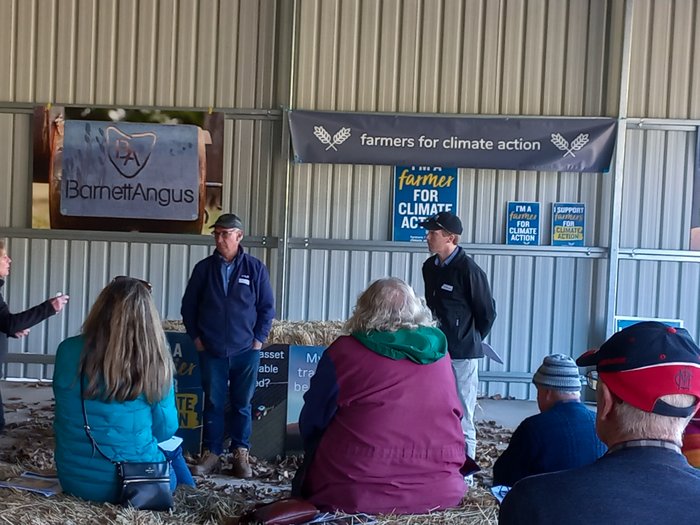
“I really enjoyed coming down, the workshops had great participant engagement and hearing that some Tasmanian producers are already carbon neutral really made my day.” – Stuart Austin, General Manager of Wilmot Cattle Company.
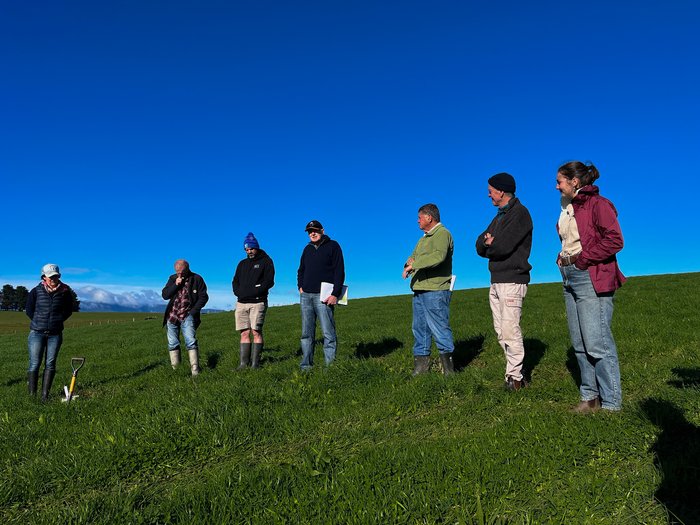
5-year project wrap up - Case Study 2
5-year project wrap up - Case Study 2
Our diverse pastures paddock hops held throughout early 2023 consisted of three informative sessions across three different properties over two days, featuring expert speakers Robin Tait and Eric Hall. Together, they helped disseminate the results of the Soil Carbon in Pastures sub-project and shed light on how multispecies pastures impact the soil environment.
Delving into the outcomes of our five-year trial, it was intriguing to witness the evolving changes in the soil over time. We gained valuable insights from farmers, who shared their experiences of how the project influenced their livestock behaviour and farm productivity. Eric Hall also provided valuable insights into pasture species selection and elective soil utilisation and maintenance. In summary, these days were a resounding success, providing us with a wealth of knowledge and a deeper understanding of the project's impact on our agricultural practices.
Partners
This project was supported by NRM North, through funding from the Australian Government’s National Landcare Program.
Partners
This project is supported by NRM North, through funding from the Australian Government’s National Landcare Program.
